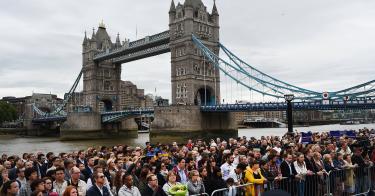A new terror strike in London has renewed the world’s focus on transnational Islamist terrorism, rekindling the old debate over how best to fight it.
The debate is understandable, but it comes far too late. It has been nearly 16 years since the 9/11 attacks, and ongoing terrorist activity has fit a predictable pattern—as has the U.S. response.
The time for retrospection has long passed. Now is the time for action.
With the Islamic State, or ISIS, now losing territory in Iraq and Syria, the terrorist group is looking to shore up its image by looking outward and striking targets abroad.
ISIS is desperate to show it is still relevant. Recently, it claimed responsibility for an attack on a resort in the Philippines even though local officials say the incident was a botched robbery.
Security officials around the world expect ISIS and al-Qaeda to try any means possible to execute or inspire attacks anywhere they can. London is the latest target to be hit, not two weeks since the May 22 suicide bombing in Manchester.
[Editor’s note: British authorities said three suspects were shot to death after driving a van into a crowd on London Bridge, then getting out and stabbing people with long knives, killing seven and wounding or injuring more than 45.]
After decades of battling this threat, what we know is that the best way to stop terrorist attacks is to find the terrorists and stop them before they attack.
That’s not always possible. While such efforts are constantly underway, it’s common sense to take reasonable precautions where possible to put additional hurdles in the terrorists’ path.
That’s what President Donald Trump’s travel order was about. It was a lawful measure issued to help mitigate an emerging threat—the outflow of foreign fighters out of conflict zones in the Middle East.
But the lower federal courts blocked it.
>>> Trump Refugee Order Balances Security and Compassion
It’s only understandable that Trump, after these latest attacks, would tweet his frustration over the judicial interference into this national security matter.
We need to be smart, vigilant and tough. We need the courts to give us back our rights. We need the Travel Ban as an extra level of safety!
— Donald J. Trump (@realDonaldTrump) June 3, 2017
There is an argument to be made that opposition to these measures tells us more about the state of partisan politics in America than about the executive order’s legal and policy merits.
Regardless, in dangerous times when lawful tools are available to the government—and government is meant to protect us—the courts ought to let government do its job.
This article was modified to update the number of dead and wounded.
This piece originally appeared in The Daily Signal




